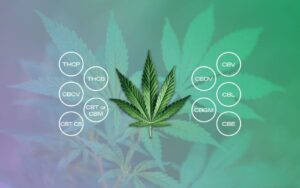On March 19, 2025, the Texas Senate sent shockwaves through the state by passing Senate Bill 3 (SB 3), a measure that could enact a Texas THC Ban Sweep, effectively outlawing all consumable tetrahydrocannabinol (THC) products outside the tightly controlled Texas Compassionate Use Program. Championed by Lt. Gov. Dan Patrick and authored by Sen. Charles Perry (R-Lubbock), this THC Sweep Ban Texas aims to dismantle a booming $8 billion hemp industry that has flourished since Texas legalized hemp production in 2019. As the bill heads to the House, where a less stringent regulatory approach is also under consideration, the stakes couldn’t be higher for businesses, consumers, and public safety advocates. What’s really at play in this Texas THC Sweep Ban debate? Let’s dive into the facts, figures, and fascinating implications.
The Roots of the Controversy
The story begins with the 2018 federal Farm Bill, which legalized hemp production nationwide, defining hemp as cannabis with less than 0.3% THC—the psychoactive compound that gets you high. Texas followed suit in 2019 with its Industrial Hemp Program, opening the door to a flood of consumable hemp products like gummies, vapes, and drinks. These products, often containing hemp-derived THC variants like Delta-8 and Delta-9, exploded in popularity, with over 8,000 stores popping up across the state by 2025. The industry’s economic impact is staggering: it generated $8 billion in revenue in 2023 alone and supports an estimated 50,000 jobs, according to the Texas Hemp Business Council.
But not everyone’s celebrating. Lt. Gov. Dan Patrick has called these products “a poison in our public,” arguing that retailers exploit legal loopholes to sell dangerously unregulated, high-potency THC items. During a March 19 press conference, he cited examples of products with up to 750 milligrams of THC per serving—far exceeding the 0.3% threshold. Allen Police Chief Steve Dye backed this claim, revealing undercover tests in his city uncovered products with THC concentrations as high as 78%. For context, a typical marijuana joint contains about 10-30 milligrams of THC. This potency gap has fueled the push for a Texas THC Ban Sweep, with Patrick vowing to shutter these stores “whether it’s in May or July or August.”
Economic Empire Under Siege
The potential fallout from a THC Sweep Ban Texas is jaw-dropping. The hemp industry isn’t just a niche market—it’s a economic juggernaut. In 2023, it raked in $8 billion, dwarfing the revenue of many traditional Texas agricultural sectors. From small family-run CBD shops to sprawling hemp farms, the industry employs tens of thousands, many in rural areas where jobs are scarce. Mark Bordas, executive director of the Texas Hemp Business Council, warns that SB 3 could “wipe out thousands of jobs and push consumers to the black market.” A ban would also kneecap retailers like Happy Cactus Apothecary in Austin, where co-owner Todd Harris says his store serves veterans and seniors seeking pain relief with products capped at 50 milligrams of THC per serving.
The ripple effects wouldn’t stop at hemp. Ancillary businesses—packaging, shipping, marketing—would take a hit, and Texas could lose its competitive edge in a national hemp market projected to reach $16 billion by 2026. Critics argue this Texas THC Sweep Ban defies the state’s pro-business ethos, replacing a thriving industry with uncertainty. Sen. Sarah Eckhardt (D-Austin) echoed this sentiment during the Senate debate, suggesting that tighter regulations, not a blanket ban, could address safety concerns without torching the economy.
Public Health: Protection or Prohibition Overreach?
At the heart of the Texas THC Ban Sweep is a fierce debate over public safety. Proponents like Patrick and Perry argue that unregulated THC products pose a clear danger. Perry has highlighted cases of behavioral health issues linked to high-potency hemp items, while Patrick’s “on-the-street investigative reports”—including a surprise visit to Happy Cactus on March 18—aim to spotlight stores near schools, like Crockett High in Austin. Law enforcement agrees: Chief Dye says vague laws and limited testing make enforcement a nightmare, leaving officers unable to distinguish legal hemp from illegal marijuana on the spot.
Yet opponents counter that a THC Sweep Ban Texas could backfire. Mark Bordas warns it would “push legal, regulated products onto dangerous black markets,” a concern echoed by cannabis reform advocates. A March 2025 poll from Marijuana Moment found 55% of Texans support keeping hemp products legal with strict regulations—not banning them outright. For some, like veterans with PTSD or parents like Piper Lindeen, whose son uses hemp-derived THC to manage seizures, these products are a lifeline. Lindeen tearfully told a Senate panel on March 7, “My son deserves a shot at life.” A ban could force these users to riskier, unregulated alternatives—or the cartels, who’d likely cheer a Texas THC Sweep Ban as a boon to their trade.
The Legislative Tug-of-War
SB 3’s passage in the Senate was decisive, sailing through with a 24-7 bipartisan vote on March 19. But its fate in the House is less certain. House Bill 28, a competing proposal, opts for stricter oversight—think licensing and potency caps—rather than a full Texas THC Ban Sweep. This regulatory approach has stalled in past sessions, but with public sentiment leaning toward moderation, it might gain traction. Patrick insists House Speaker Dustin Burrows and Gov. Greg Abbott are “on the same page” with the ban, but their silence leaves room for speculation. Will the House double down on prohibition or chart a middle path?
The Senate’s rhetoric is fiery. Perry calls the hemp industry a “genie” that needs bottling, while Patrick frames it as a “life and death issue.” Yet the March 7 Senate hearing drew hundreds of protesters, with over 170 signing up to testify against the ban. The crowd was so large it forced the meeting into the main chamber, and disruptions even prompted a temporary spectator eviction. This grassroots pushback signals a broader clash: individual liberty and innovation versus state control and safety.

Beyond the Ban: What’s Next for Texas?
If the Texas THC Sweep Ban becomes law, it wouldn’t just reshape the hemp landscape—it could redefine Texas’ cannabis future. The state’s Compassionate Use Program, one of the nation’s strictest, allows medical marijuana for a handful of conditions, serving fewer than 20,000 patients as of 2025. SB 3’s backers support expanding it, but only slightly—think milligrams over weight limits, not new conditions. Critics say this misses the point: banning hemp-derived THC while keeping marijuana restrictive could drive demand for illicit cannabis, not medical solutions.
Ironically, Texas’ prohibitionist streak may have birthed this mess. The 2019 hemp law’s lax rules—no age limits, weak enforcement—invited bad actors to flood shelves with potent products. A retired cop writing for the Austin American-Statesman on March 7 argued that a ban would burden police further without curbing demand, advocating for targeted fixes instead. Meanwhile, hemp advocates like Harris at Happy Cactus insist they’re already complying, carding customers and limiting potency. Could regulation—not a THC Sweep Ban Texas—strike the balance?
The Stakes in Sharp Relief
As of March 20, 2025, Texas stands at a crossroads. The Texas THC Ban Sweep could erase a $8 billion industry, 50,000 jobs, and a lifeline for thousands, all in the name of safety. Or it could protect a vulnerable public from a Wild West of unregulated THC, as Patrick claims. The House’s next move will tip the scales, but one thing’s clear: this isn’t just about weed. It’s about economics, freedom, and the soul of a state that prides itself on both rugged individualism and fierce governance. Whatever happens, the fallout from this Texas THC Sweep Ban will echo far beyond Austin.
Discover NanoHempTechLabs’ premium hemp-derived THC products, crafted with cutting-edge nanotechnology for superior bioavailability and rapid onset. As Texas debates a sweeping THC ban, now’s the time to secure your wholesale supply of innovative offerings like Nano 9 THC Seltzer—perfect for retailers aiming to meet growing demand. With an $8 billion industry at stake, partnering with NanoHempTechLabs ensures you stay ahead in a shifting market. Elevate your product lineup with our high-quality, lab-tested solutions that cater to wellness-focused consumers. Don’t wait—schedule a call today to explore wholesale opportunities and thrive amidst the Texas THC Ban Sweep!
Reference:
- Coats, V., Stack, L., & Rumpho, M. (2011). Maine nursery and landscape industry perspectives on invasive plant issues. Invasive Plant Science and Management, 4(4), 378-389. https://doi.org/10.1614/ipsm-d-10-00086.1
- Dampier, J., Shahi, C., Lemelin, R., & Luckai, N. (2016). Assessment of potential local and regional induced economic impact of an energy policy change in rural northwestern ontario. Energy Sustainability and Society, 6(1). https://doi.org/10.1186/s13705-016-0079-7
- Fergusson, D. and Horwood, L. (2001). The christchurch health and development study: review of findings on child and adolescent mental health. Australian & New Zealand Journal of Psychiatry, 35(3), 287-296. https://doi.org/10.1046/j.1440-1614.2001.00902.x





